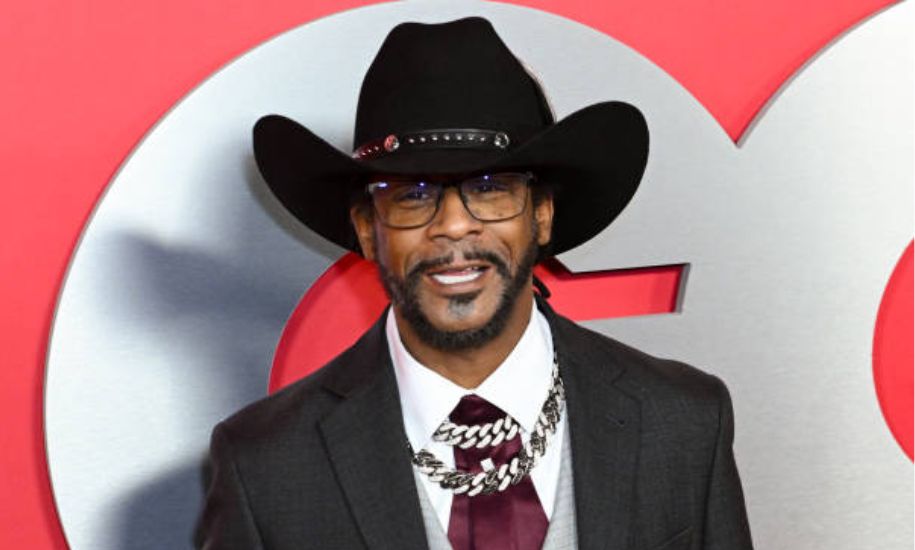Brady Hartsfield: The Mind Behind Mr. Mercedes

Brady Hartsfield is one of the most haunting fictional villains ever created by Stephen King. As the central antagonist in the Bill Hodges trilogy — Mr. Mercedes (2014), Finders Keepers (2015), and End of Watch (2016) — Brady embodies the quiet horror of modern evil. His crimes, motivations, and broken family background form the core of one of King’s darkest and most psychologically rich stories.
The character reached an even wider audience when he was brought to life on screen in the television adaptation Mr. Mercedes (2017–2019), with British actor Harry Treadaway portraying him in chilling form.
This article explores who Brady Hartsfield is, his age and background, his family, his psychological makeup, his portrayal in the series, and the meaning of his ultimate fate.
Who Is Brady Hartsfield?
Brady Hartsfield is the main villain of Stephen King’s Mr. Mercedes trilogy — a young man who commits one of the most horrifying mass murders in King’s fiction. Known to the public as “the Mercedes Killer,” Brady drives a stolen Mercedes sedan into a crowd of job seekers early one morning, killing and injuring dozens.
He is highly intelligent, technologically skilled, and manipulative — but also deeply disturbed. The act of mass murder is not simply about violence; for Brady, it’s a twisted form of artistry and control. He craves not only chaos, but attention and domination.
In the novels, his nemesis is retired detective Bill Hodges, who becomes obsessed with bringing him to justice. What follows is a psychological chess game between two damaged minds — one trying to heal, the other trying to destroy.
Age and Background
Stephen King never gives Brady Hartsfield an exact age, but contextual clues suggest he is in his late twenties or early thirties during the events of Mr. Mercedes. He works part-time at an electronics store, while also driving an ice-cream truck in his suburban neighborhood. These ordinary jobs mask the mind of a sociopath who thrives on anonymity.
Brady grew up in a bleak household. His father died when he was a child — around the age of eight — leaving him in the care of his mother. From that point on, his life spiraled into psychological darkness. Deprived of guidance, Brady became a victim of manipulation, cruelty, and emotional distortion.
His intelligence, particularly with technology and computers, sets him apart. In both the novels and the TV series, he is portrayed as a self-taught hacker capable of extraordinary technical feats. His ability to weaponize digital tools becomes more apparent as the story progresses, turning him into a symbol of modern-day, tech-driven evil.
The Hartsfield Family
His Father
Brady’s father died when he was young. Very little is revealed about him in the novels, except that his death marked the beginning of Brady’s emotional disintegration. Without a stable parental figure, the young boy became the sole emotional companion of his unstable mother.
His Mother
Brady’s mother is central to his twisted development. She is portrayed as an alcoholic, emotionally abusive woman who controls every aspect of his life. In both the book and television versions, their relationship goes beyond ordinary dysfunction — it becomes deeply disturbing, even hinting at incestuous undertones.
Her manipulation and neglect shape Brady’s view of love, control, and violence. The psychological scars she leaves form the basis of his sociopathy. When King explores the relationship between mother and son, it’s clear that Brady’s crimes are the result not only of his own choices, but of years of emotional and physical corrosion.
His Brother
Brady had a younger brother who was mentally disabled. In one of the most disturbing parts of his backstory, his mother forces him to kill the boy — an act that seals Brady’s path toward psychological ruin. The trauma of this incident haunts him throughout his life, although his guilt manifests only as rage and resentment.
His Relations
Beyond his family, Brady has few genuine human connections. Most of his interactions are manipulative or exploitative. His relationships exist mainly as a means to exert control or fulfill his own twisted desires. The only consistent “relationship” he maintains is the cat-and-mouse connection with Detective Hodges — a bond that becomes almost symbiotic.
Marriage, Relationships, and Children
In both the novels and the television adaptation, Brady Hartsfield is never depicted as married or romantically involved. His emotional capacity is so warped that traditional relationships are impossible. He has no spouse, no children, and no genuine friendships.
His psychological makeup revolves around dominance, obsession, and control — not affection or empathy. His strongest emotional attachment is to his abusive mother, which replaces the role of every other human connection in his life.
Brady Hartsfield’s Personality
Brady’s mind is the heart of the story. He is brilliant but psychopathic, clever but unhinged. He thrives on duality — the appearance of normalcy that hides monstrosity. His outward charm, quiet demeanor, and work ethic make him invisible to society, while his inner life is consumed by rage and sadism.
Psychologically, he exhibits classic traits of antisocial personality disorder: lack of empathy, manipulation, deceit, and impulsive aggression. His need to taunt and control others — particularly his victims and Detective Hodges — reveals his craving for recognition.
Stephen King doesn’t portray him as an inexplicable monster, however. He is a product of human failure — a victim of abuse, trauma, and social invisibility. This makes Brady one of King’s most realistic and disturbing villains.
Brady Hartsfield in Mr. Mercedes
In the first novel, Mr. Mercedes, Brady plans and executes his infamous crime — driving a stolen luxury car into a crowd of job-seekers in the early morning hours. The brutality of the act shocks the fictional city and sets the stage for retired detective Bill Hodges to come out of retirement.
What follows is a high-stakes psychological game between the two men. Brady contacts Hodges through taunting letters and online messages, attempting to push the detective toward suicide. What he doesn’t expect is Hodges’ resilience — and his determination to fight back.
By the end of the first book, Brady’s plot is uncovered, and his rampage is stopped — but he survives, setting the stage for the sequels.
The Evolution in Finders Keepers and End of Watch
While Finders Keepers focuses on a different criminal, Brady remains an important presence, confined to a hospital bed after his near-fatal injuries. By the third novel, End of Watch, he becomes something far stranger: a comatose patient who somehow gains telekinetic and psychic abilities, allowing him to control others through technology.
King reintroduces a touch of the supernatural — merging science fiction and horror — to show how evil can transcend the body. Brady uses a video-game-like app to manipulate people into suicide, turning his technological genius into a new weapon of mass destruction.
By the end of the trilogy, Brady is incapacitated, mentally powerful but physically ruined. His ultimate fate is ambiguous: he may die, or he may simply fade away, but his psychological presence lingers long after his body fails.
Brady Hartsfield’s “Death”
Brady’s death, if it can be called that, is symbolic rather than literal. He doesn’t die in a blaze of glory or execution. Instead, he becomes trapped — paralyzed, confined to a hospital bed, and eventually left powerless. His body remains alive, but his mind becomes a cage of its own making.
This ending reflects King’s fascination with the persistence of evil — the idea that some malevolence cannot be destroyed, only contained. Even as Brady’s physical life ends, his influence continues, haunting both the characters and readers alike.
Brady Hartsfield’s Net Worth
Because Brady is a fictional character, there is no meaningful answer to his “net worth.” Within the context of the story, he is a low-income worker who lives modestly with his mother. His power is psychological and technological, not financial.
Any references to Brady’s “net worth” found online are speculative and not based on canonical information from the novels or the series.
Harry Treadaway: The Actor Behind Brady Hartsfield
In the television adaptation of Mr. Mercedes, Brady Hartsfield is portrayed by British actor Harry Treadaway. His performance brings depth, intelligence, and a disturbing realism to the role.
Born in 1984 in Exeter, England, Harry Treadaway trained at the London Academy of Music and Dramatic Art (LAMDA). He is the twin brother of fellow actor Luke Treadaway. Before Mr. Mercedes, he gained recognition for his roles in Penny Dreadful, Control, and City of Ember.
Treadaway’s interpretation of Brady is both magnetic and terrifying. He avoids playing the character as a cartoon villain, instead portraying him as a broken genius — a man shaped by cruelty and loneliness. His calm, polite demeanor contrasts violently with his sadistic inner world, making the performance unforgettable.
The actor has spoken in interviews about the psychological complexity of Brady, calling him “a monster who still feels like a man.” Treadaway’s nuanced portrayal helped elevate the Mr. Mercedes series, earning praise from both critics and Stephen King fans.
Themes and Symbolism
Brady Hartsfield embodies several recurring themes in Stephen King’s work:
- The Banality of Evil – Brady appears ordinary. He works regular jobs, lives in a modest home, and passes unnoticed in society. King uses this ordinariness to suggest that evil often hides behind normal faces.
- The Cycle of Abuse – Brady’s violent tendencies are rooted in the abuse he suffered as a child. King explores how cruelty begets cruelty, and how unchecked trauma can evolve into monstrosity.
- Technology and Isolation – Brady’s use of digital tools to manipulate others reflects our modern fears about technology, control, and the erosion of human connection.
- The Struggle Between Light and Darkness – Through his rivalry with Bill Hodges, King dramatizes the eternal conflict between good and evil, sanity and madness, compassion and cruelty.
These themes make Brady more than just a villain — he is a cautionary symbol of what happens when intelligence meets emptiness, and when pain festers into hatred.
Legacy of the Character
Brady Hartsfield stands alongside King’s most memorable antagonists — figures like Randall Flagg, Annie Wilkes, and Pennywise — not because he is supernatural, but because he feels terrifyingly real. He is the product of modern life: alienated, intelligent, disconnected, and unseen.
Unlike supernatural monsters, Brady is believable. You could meet someone like him on the street — polite, reserved, a bit odd — and never guess what darkness lies beneath. That realism is what makes him so unforgettable.
The character’s journey, from broken child to remorseless killer to psychic ghost, is both tragic and horrifying. It reminds readers that evil doesn’t always come from outside — sometimes it’s born in the most ordinary of homes.
Final Thoughts
Brady Hartsfield is more than a villain — he’s a reflection of the fragility of the human mind. Through him, Stephen King shows how trauma, loneliness, and intelligence can collide to create something truly monstrous.
In Mr. Mercedes, Finders Keepers, and End of Watch, Brady’s story unfolds as a disturbing blend of crime, psychology, and supernatural horror. Harry Treadaway’s television portrayal adds another layer — bringing the character’s cold intelligence and hidden pain to life with remarkable precision.
For fans of King’s work, Brady remains a character who lingers long after the final page is turned — a chilling reminder that the most terrifying monsters are often the most human.
Written for fanzineblog — exploring characters, stories, and the psychology of fiction’s darkest minds.

